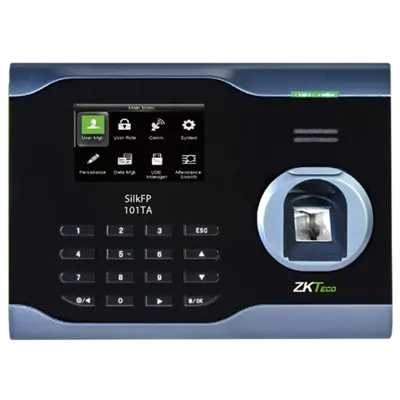Introduction
Small businesses are the lifeline of Nigeria’s economy. From fashion entrepreneurs and e-commerce startups to law firms and consultancy services, these enterprises power the nation’s growth. Yet, as more businesses move online, cybercriminals are becoming increasingly aggressive. Phishing scams, ransomware, and data theft now target small and medium-sized enterprises (SMEs) because they often lack advanced protection.
The question many Nigerian entrepreneurs ask is: “How can I secure my business without breaking the bank?” The answer lies in adopting affordable cybersecurity services in Nigeria that protect your data, finances, and customer trust while staying within your budget. This guide explores practical and cost-effective protection strategies, while also spotlighting reliable companies — including Tektins — that provide tailored cybersecurity solutions for Nigerian small businesses.
Why Cybersecurity Matters for Nigerian SMEs
-
Rising Threats: In Nigeria, small businesses face increasing cyberattacks ranging from email scams to sophisticated ransomware. Hackers know SMEs often don’t have the same robust defenses as larger corporations.
-
Financial Loss: A single breach can cost millions in stolen funds, disrupted operations, and loss of customer confidence. For an SME, this could mean closure.
-
Customer Trust: Nigerians are becoming more conscious of where they shop and who they trust with their data. Businesses with weak protection risk losing loyal clients.
-
Regulatory Compliance: With the Nigerian Data Protection Regulation (NDPR), SMEs are legally required to secure customer data. Ignoring cybersecurity could lead to fines and reputational damage.
Affordable Cybersecurity Services in Nigeria
The good news is that strong security doesn’t always mean heavy spending. Many affordable cybersecurity services in Nigeria are designed with small businesses in mind. Here are some budget-friendly options SMEs should consider:
-
Basic Antivirus and Firewalls: Tools like Avast for Business, Bitdefender, and Kaspersky Small Office offer low-cost protection against viruses and malware.
-
Secure Email Services: Platforms such as Google Workspace or Zoho Mail filter out phishing attempts and spam.
-
Two-Factor Authentication (2FA): Adding an extra login step through apps like Google Authenticator or Duo drastically improves account safety.
-
Password Managers: Tools like LastPass or 1Password help employees create strong, unique passwords.
-
Cloud-Based Cybersecurity: Affordable, subscription-based services that monitor your systems without the need for expensive infrastructure.
Practical Protection Strategies for Small Businesses
Even without large budgets, Nigerian SMEs can take practical steps to reduce risk. Here are strategies every entrepreneur can apply:
1. Train Employees
Cybersecurity starts with people. Teach your staff how to identify suspicious emails, avoid unsafe websites, and follow company guidelines for handling data.
2. Use Strong Authentication
Enable two-factor authentication for all accounts, especially online banking, email, and e-commerce platforms.
3. Regular Software Updates
Ensure operating systems, apps, and plugins are updated regularly to patch vulnerabilities.
4. Secure Wi-Fi Networks
Protect your business Wi-Fi with strong passwords, disable guest networks when not needed, and use encrypted connections.
5. Prioritize Data Backups
Never underestimate the power of a backup. Reliable data backup and recovery solutions Nigeria can help you bounce back quickly from ransomware attacks, hardware failures, or accidental data loss.
6. Affordable VPNs for Safe Browsing
VPNs like ProtonVPN and NordVPN secure online activity, especially when employees work remotely.
Data Backup and Recovery: Why It’s Non-Negotiable
One of the most overlooked areas of cybersecurity is data backup and recovery solutions Nigeria. Imagine losing all your customer records, invoices, or legal files due to a single attack — it could cripple your business. Backups are your insurance policy.
-
Cloud Backups: Services like Google Drive, Dropbox, and Microsoft OneDrive provide affordable options with auto-sync.
-
Physical Backups: External hard drives and USBs can serve as offline backup solutions.
-
Hybrid Approach: Combining both cloud and offline storage offers double protection.
With reliable data backup and recovery solutions Nigeria, small businesses can ensure operations continue smoothly even in the face of cyberattacks.
Building Customer Trust Through Cybersecurity
In Nigeria’s competitive market, trust is everything. Customers want assurance that their personal and financial data is safe. By investing in affordable cybersecurity, businesses can:
-
Showcase secure payment gateways.
-
Communicate openly about their data protection policies.
-
Build loyalty by demonstrating professionalism and responsibility.
A secure business is a trustworthy business — and that trust translates to more sales.
Five Companies Offering Cybersecurity for Nigerian Small Businesses
To make things practical, here are five firms offering cybersecurity solutions in Nigeria, including affordable options for SMEs:
1. Digital Encode
A pioneer in Nigeria’s cybersecurity space, Digital Encode provides tailored IT security services, including vulnerability assessments and compliance with NDPR.
2. MainOne (An Equinix Company)
Known for its robust data center and cloud solutions, MainOne also offers enterprise-level cybersecurity services with scalable packages for small businesses.
3. Layer3 Nigeria
Layer3 specializes in networking and cloud security. Their services include firewall management, VPNs, and endpoint security solutions.
4. Tektins
Tektins stands out as a trusted technology partner for Nigerian SMEs, providing affordable cybersecurity services in Nigeria that combine data protection, staff training, and data backup and recovery solutions Nigeria. Tektins focuses on empowering small businesses with cost-effective yet professional-grade security.
5. Cybersoc Africa
This company provides managed security services, threat intelligence, and incident response tailored to African businesses. Their round-the-clock monitoring is ideal for SMEs needing constant protection.
The Future of Cybersecurity for Nigerian SMEs
As Nigeria moves deeper into digital transformation, cybersecurity will no longer be optional. SMEs must view security as an investment, not an expense. Affordable tools, reliable service providers, and regular staff training will help businesses stay competitive in the digital economy.
Forward-looking companies like Tektins and other cybersecurity providers are already bridging the gap, ensuring even the smallest businesses can defend themselves from cyber risks.
Conclusion
Cybersecurity is no longer reserved for large corporations. Nigerian small businesses face real threats daily, but with the right mix of tools, strategies, and expert support, they can stay protected. Affordable measures like antivirus software, two-factor authentication, and especially data backup and recovery solutions Nigeria make it possible for SMEs to secure their operations without overspending.
By working with trusted providers — including Tektins — and prioritizing affordable cybersecurity strategies, small businesses in Nigeria can safeguard their future, build customer trust, and thrive in an increasingly digital world.





Comments are closed